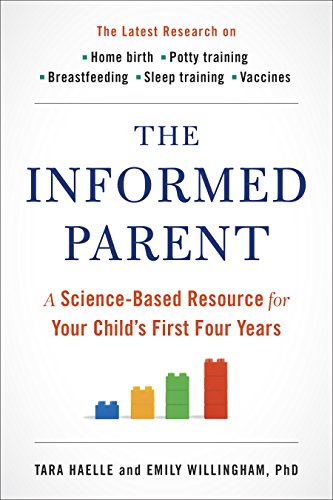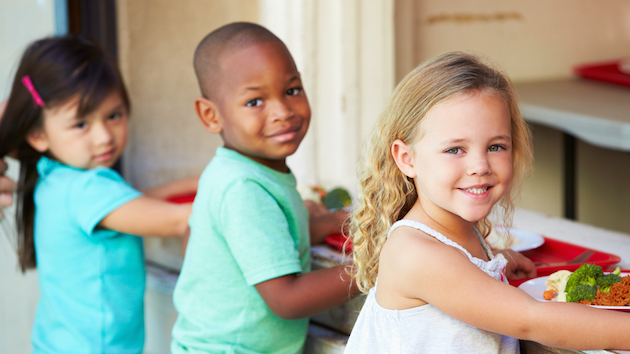
<p><a href="http://www.istockphoto.com/photo/morning-eat-gm511863002-86856861?st=_p_kid%20eating" target="_blank">shironosov</a>/iStock</p>
Bite is Mother Jones‘ new food politics podcast. Listen to all our episodes here, or by subscribing in iTunes or Stitcher or via RSS.
Almost eight months into my parenting adventure, I’ve developed a tolerance for dirty diapers, sleepless nights, and countless rounds of “Itsy Bitsy Spider.” Here’s what I still can’t stomach: the mommy blogosphere clickbait slideshows that keep appearing on my Facebook feed. I’ve been treated to no shortage of grammatically and factually wanting roundups of foods my kid (and I) should “never” eat. So junky are these pieces that I refuse to dignify them with a link.
So imagine my delight when Bite co-host Maddie Oatman and I interviewed a pair of parenting experts whose opinions on kids’ food is backed up by actual science. How refreshing! Journalists Tara Haelle and Emily Willingham are the authors of The Informed Parent: A Science-Based Resource for Your First Four Years. The book covers many of the most controversial aspects of child-rearing, from sleep training to spanking, but we at Bite, of course, were interested in food. Below are Haelle and Willingham’s thoughts on a few hot topics.
On drinking the occasional glass of wine during pregnancy: “We will never know precisely how much alcohol may or may not affect a particular embryo or fetus because there are genetic markers that will determine that, and you won’t know in advance what your embryo or fetus’ genetic makeup is or which genes are flipped on or off in certain ways. It will also depend on your own metabolism.
However, I will say in the in vitro studies, where you’re looking at the impact of alcohol on embryos in petri dishes, where you see what alcohol does to those developing cells and then you imagine that any alcohol you consume goes straight through the placenta to the fetus—there’s no barrier there—it could be diluted to the point where it doesn’t have any effect, or it could be right at the moment where this crucial group of cells is turning into this other crucial group of cells, and we don’t have any way of knowing that. At the same time, I would say that women who have had several drinks and then find out they’re pregnant should not freak out, because the odds are still in their favor that there are not going to be any serious issues.
But I think we need to avoid the complacency of saying, ‘Oh a few drinks here, a few drinks there, no big deal’…There is no good evidence that even a small amount of alcohol is okay, and there is adequate in vitro evidence to suggest that even small amounts could have adverse effects, and it’s not possible to know how or when those effects will occur.”—Tara Haelle
On eating your baby’s placenta because of its supposed health benefits: “Right now, we can say, if you want to eat your placenta, be safe about it. Follow food-handling guidelines. But don’t expect that it’s going to have anything more than a placebo effect. The one thing I will say that’s very serious: If you are trying to eat your placenta or take placenta pills to ward off postpartum depression, the risk in that is that you might not notice when you are experiencing postpartum symptoms that need to be addressed. Beyond that, we can’t say it does or doesn’t help you.”—Tara Haelle
On whether it’s worth it to shell out for organics for your kid: “In my opinion, no. It’s kind of a luxury that lacks a solid evidence base. The science seems to come down on the really important factor: to make sure that they get foods that are high in nutrients that children need. And whether they’re conventionally or organically grown doesn’t seem to affect the nutrient profile in any way that’s significant. I think it places pressure on parents to spend more than they have, and it’s more important to focus on a variety of colors and a variety of foods that are fresh and as little processed as possible than whether they are conventionally or organically grown.”—Emily Willingham
Hear more fascinating facts—how what you eat during pregnancy can shape your kids’ tastes, the link between screen time and obesity, how long to breastfeed—in the full episode.


















